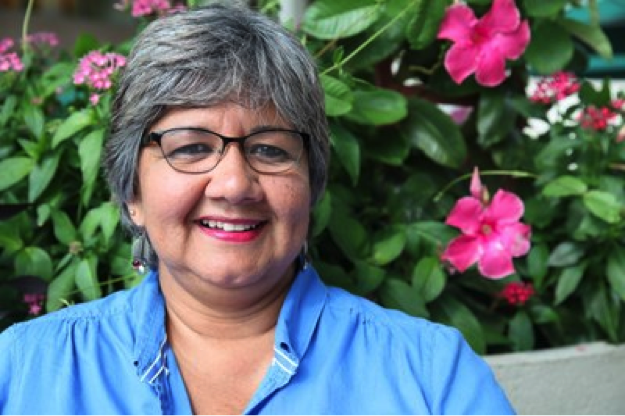Claudia Sibila, a medical interpreter in the Interpreter Services Department, did not realize how much her friends and family truly influenced her every day.
“The people that surround you become a part of you,” she said. “A positive influence is important.”
Her three pregnancies provided Sibila with motivation for being tobacco free. Yet, she found herself sliding back and smoking again after her children were born. She considered herself to be an on and off smoker, with periods of abstinence followed by periods of smoking, especially when she felt stressed or upset.

Claudia Sibila, a medical interpreter in the Interpreter Services Department, did not realize how much her friends and family truly influenced her every day.
“The people that surround you become a part of you,” she said. “A positive influence is important.”
Her three pregnancies provided Sibila with motivation for being tobacco free. Yet, she found herself sliding back and smoking again after her children were born. She considered herself to be an on and off smoker, with periods of abstinence followed by periods of smoking, especially when she felt stressed or upset.
Her partner of a year-and-a-half also smoked, and earlier this year, they both began to question why they were smoking. “We realized that we smoked together. Before being with each other, we didn’t smoke that much,” she said. “We were bad influences for each other.”
On the other hand, for years her three kids had tried hard to get her to stop smoking. From small messages left on her cigarette cases to signs of disapproval when she would go out for a smoke, Sibila’s children tried to remind her how detrimental smoking was to her health.
Finally, she and her partner decided it was time to quit. She enrolled in Tobacco Free Tar Heels (TFTH), a free program for UNC Health Care employees. TFTH provides assistance for making a quit plan, which may include cessation medications at no charge. It also offers weekly follow-up for ongoing support.
Sibila contacted Barbara Silver, program manager for TFTH, and set up the first session to create her own unique plan. She chose to use Chantix because she liked the idea of using a pill. Although she found the first few weeks to be challenging, Sibila knew she had to do it for herself, as well as for her family. And she had regular encouragement and support from Silver. “The program made it easy for me, so that when I needed support, I would get it.”
She quit smoking in May after participating in the program for three months. “I certainly enjoy the fact that I’m not paying to be unhealthy. Every time I was buying a pack, I was buying my sickness.”
Sibila’s partner found a program to help her become tobacco free as well. “We share the ups and downs through our programs. But now we are influencing each other in a positive way,” Sibila says with a satisfied smile.
If you (or a family member covered by your State Health Plan) are interested in the Tobacco Free Tar Heels program, contact Barbara Silver at (919) 445-5358 or tobaccofreetarheels@unc.edu.
